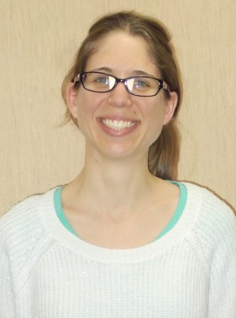According to current research, the prevalence of vision problems after concussions may be as high as 69 percent. concussion-related functional vision problems can be debilitating, severely impacting your ability to learn, work and live a normal life.
Fortunately, concussion-related functional vision problems can be treated through the use of vision therapy.
Our society is becoming more and more aware of how often concussions occur. In their medical claims data since 2010 for patients ages 10 to 19, Blue Cross Blue Shield reported a 71% increase in rough sport-related concussions.
Research is also revealing the link between concussion and vision problems.
The prevalence study “Vision Diagnoses are Common After Concussion in Adolescents,“ revealed that out of 100 adolescents diagnosed with a concussion, 69% were also diagnosed with a functional vision problem. We detail the study in this post on the concussion-vision link.
In the retrospective study “Vision Therapy for Post Concussion Vision Disorders,” out of 218 patients diagnosed with a concussion and referred for a functional vision problem:
62% of patients experienced Binocular Vision (Eye Teaming) Problems
54% of patients experienced Accommodation (Focusing) Problems
21% of patients experienced Eye Tracking Problems
We detail that study on brain injuries and vision in this post.
But how do these issues manifest in patients? Let’s take a look at the typical symptoms.
Treatment for a functional vision problem resulting from a concussion will be different for every patient. After we’ve diagnosed the specific issue affecting a patient, our developmental optometrists may recommend some or all of these treatment methods:
Glasses: Prescription lenses specifically designed to alleviate symptoms and improve visual function.
Syntonics: An imbalance in the autonomic nervous system is commonly seen in traumatic brain injuries. This imbalance negatively affects a person’s use of their vision. A non-invasive treatment using therapeutic light, syntonic phototherapy can be successful in restoring balance to the autonomic nervous system, which supports the rehabilitation of visual skills.
Vision therapy: A series of in-office and at-home activities and exercises designed to improve the visual skills that have been affected by a head injury. In some cases, the patient may just be given activities to be done at home. In other cases, a combination of home and in-office VT will be recommended.
The length of treatment will also vary with each patient based on how many visual skill areas are affected and their individual case. No matter what the duration of time, we’ve found that patients experience improvement throughout the treatment.
We’ve included three of our own success stories here so you can get a sense of how treatment works beyond the numbers.

Celeste Glover experienced a traumatic brain injury after a nearly fatal motorcycle accident. After vision therapy, her peripheral vision, depth perception and focus are nearly back to normal.

Emily Baxter suffered a pulmonary embolism with secondary anoxic brain injury. She would fatigue easily and had a hard time processing what she heard or saw. Vision therapy provided life-changing improvements, allowing her to resume life activities.
Kim Lohr was walking one winter morning when she slipped on a patch of ice. She suffered a concussion. She couldn’t drive, and watching TV or reading made her nauseous. Vision therapy has helped her overcome these issues.
If you’re suffering many of the symptoms listed here, we recommend a Functional Vision Test. A Functional Vision Test assesses eye movements, eye tracking and eye focusing. It includes a thorough evaluation of the skills typically impaired by concussions.
After the test has been conducted, the doctors will recommend specific treatment options. To make an appointment for a Functional Vision Test, or to request more information, fill in the form below.
The content on this website has been created by The Vision Therapy Center. It was written by professional writers and then reviewed and edited for medical accuracy by the Developmental Optometrists at The Vision Therapy Center.
The Vision Therapy Center, Inc. – Phone: 262-784-9201 FAX 262-784-9206
Locations
The Vision Therapy Center, Inc. - Brookfield, WI
13255 W Bluemound Rd #200
Brookfield, WI 53005
262-784-9201
Brookfield hours of operation / 8 am - 6 pm M-Th - 8 am - 5 pm F
The Vision Therapy Center, Inc. - Madison, WI
4781 Hayes Rd #103
Madison, WI 53704
262-784-9201
Madison hours of operation / 9:15 am - 5:45 pm Th
The Vision Therapy Center FDL, LLC - Fond du Lac, WI
101 Wisconsin American Drive, Suite 800
Fond du Lac, WI 54937
262-784-9201
Fond du Lac hours of operation / 9:00 am - 6:00 pm Tues